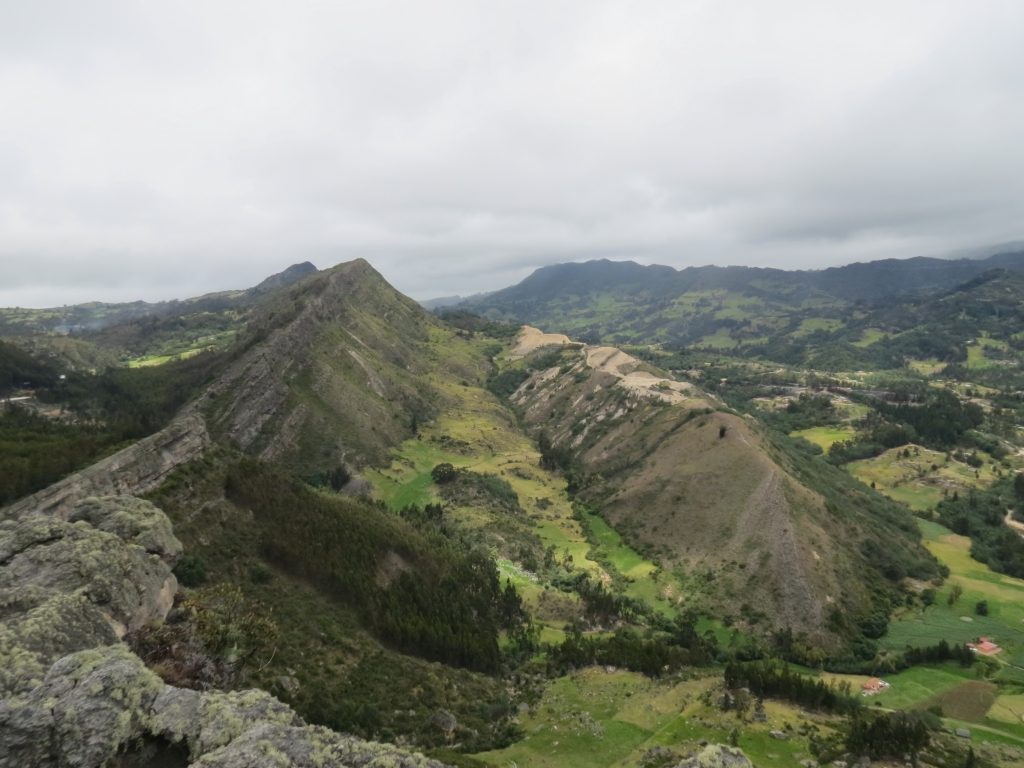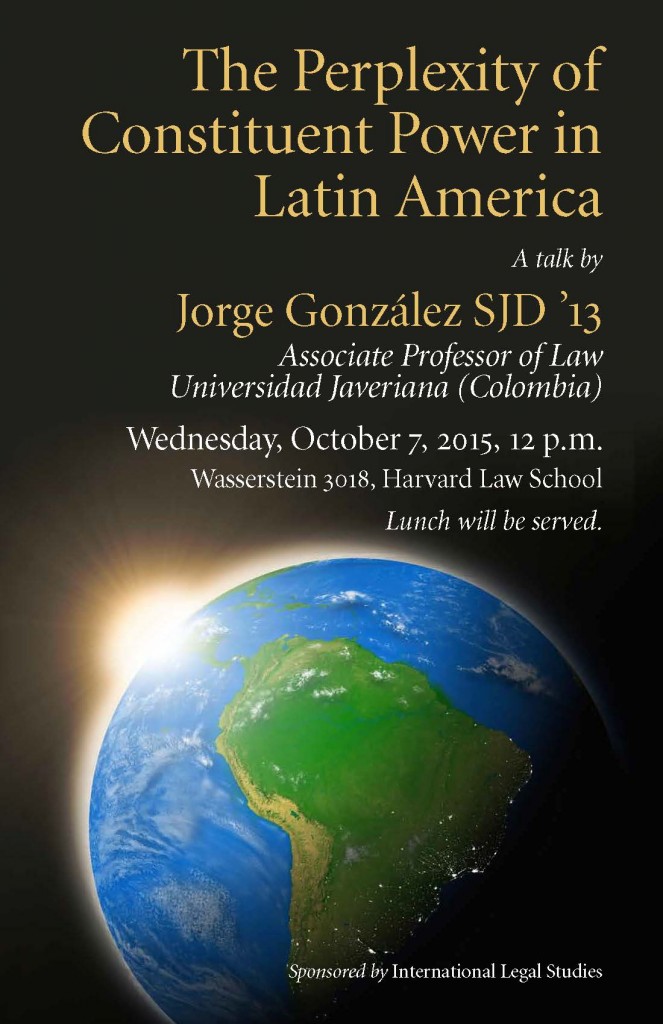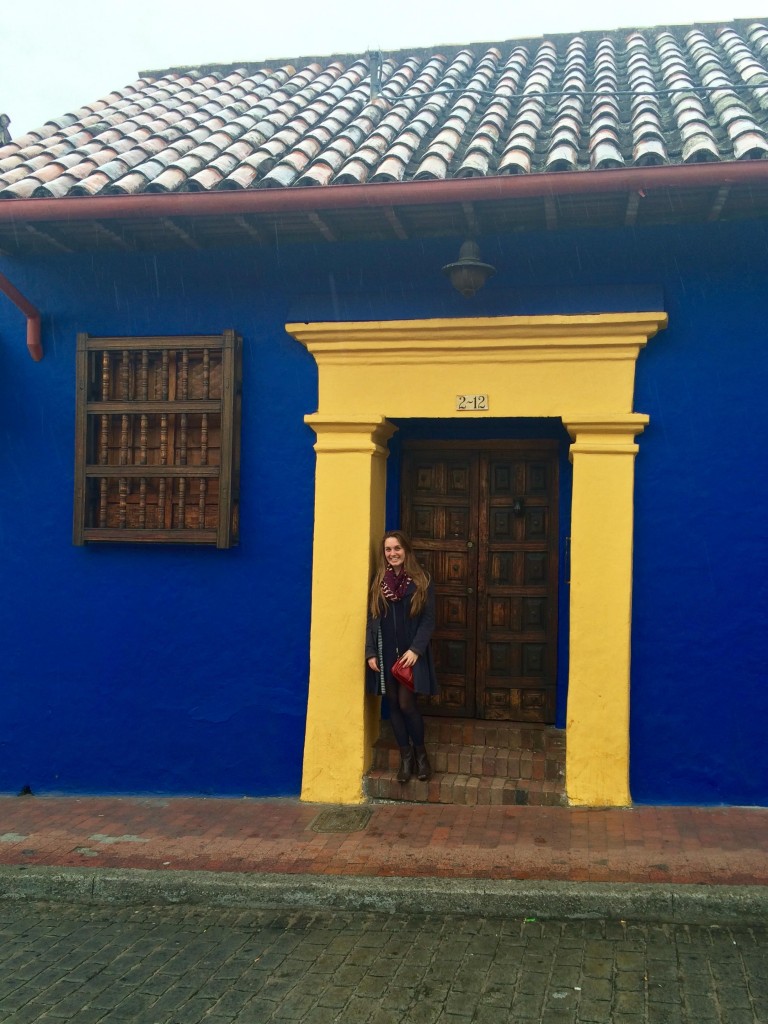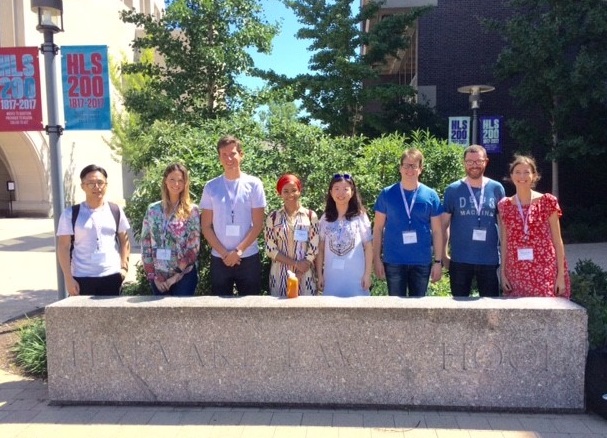
This fall, nine students from law schools abroad are studying or conducting research at HLS. At the same time, 11 HLS students will spend the fall semester abroad, in Brazil, China, France, Japan, Mexico and Switzerland, either at our exchange partner schools or through an independent semester abroad, and this year two HLS students will enroll in the Harvard Law School and University of Cambridge J.D./LL.M. Joint Degree Program in the United Kingdom.
We hope you’ll have a chance to meet these visiting students.
Pictured above, left to right: FANG Longfei, Renmin University Law School, China; Luna Barroso, Fundação Getulio Vargas, Brazil; Thomas Romailler, University of Geneva Faculty of Law, Switzerland; Harum Mukhayer, University of Cambridge, United Kingdom; BAO Xiaoli, Renmin Law School, China; Joël Schwizgebel, University of Geneva Faculty of Law, Switzerland; Joel Phillips, Sydney Law School, Sydney, Australia; and Alice Dartevelle, Sciences Po Law School, Paris, France. (Not pictured: Tim Bowley, Sydney Law School, Sydney, Australia.)
Where can study abroad take you? Visit the Semester Abroad pages in the International Legal Studies section of the HLS website, and watch the HLS Calendar of Events and this blog for postings about information sessions scheduled in September and later in the year.

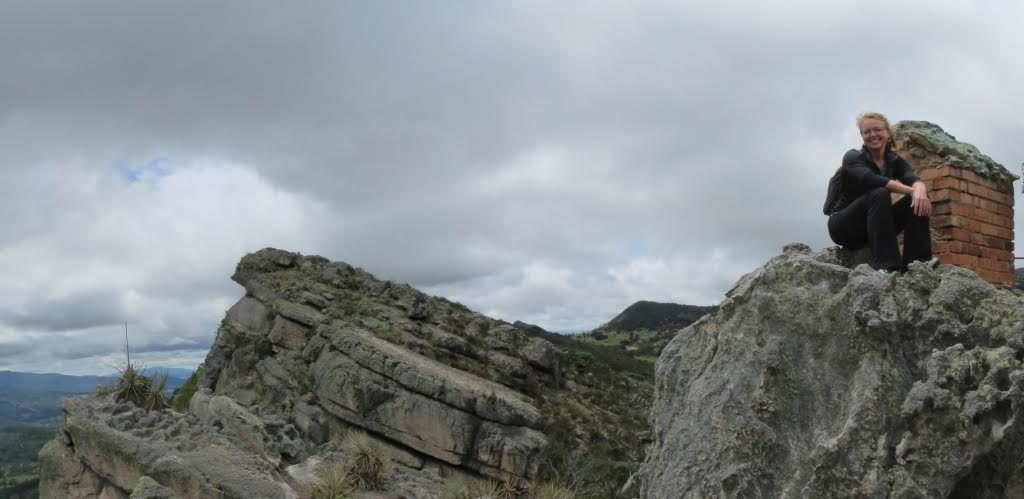 I feel so fortunate to be here at this time, as the peace accords between the FARC and the government are being finalized. It was incredible to be here a couple of weeks ago when an agreement was reached on one of the remaining points for the overall peace agreement, including terms for a bilateral ceasefire and for disarmament of the FARC. And although no one knows for sure whether a final accord will be signed this summer, it definitely makes for a lot of fascinating conversations, and I have really loved reading and learning about such things as the historical roots of the conflict, previous negotiations with the FARC and other armed groups, and ongoing challenges facing the country.
I feel so fortunate to be here at this time, as the peace accords between the FARC and the government are being finalized. It was incredible to be here a couple of weeks ago when an agreement was reached on one of the remaining points for the overall peace agreement, including terms for a bilateral ceasefire and for disarmament of the FARC. And although no one knows for sure whether a final accord will be signed this summer, it definitely makes for a lot of fascinating conversations, and I have really loved reading and learning about such things as the historical roots of the conflict, previous negotiations with the FARC and other armed groups, and ongoing challenges facing the country.